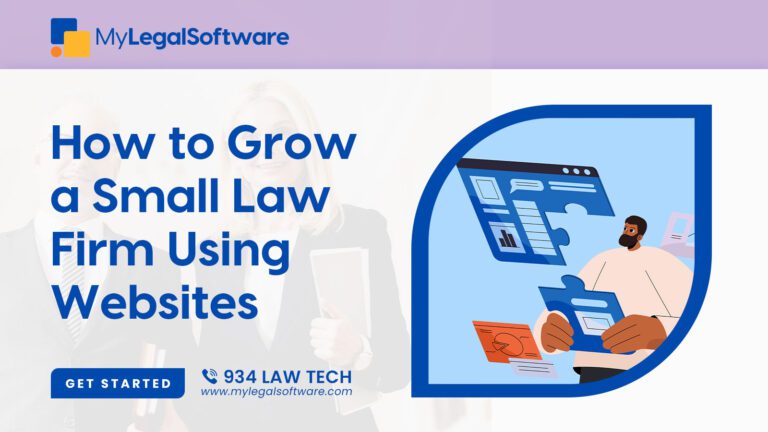Law Firm Website Content Writing for Client Attraction
Attracting clients is no easy job for a law firm, but having a website content writing strategy can make all the difference in your client acquisition.
Brilliant content on your website should inform your audience and be engaging, educational, and interesting. Without this, your visitors would quickly leave your website.
Although conveying essential messages about your services on your website is vital, having educational and engaging content will keep your visitors returning to learn more.
In other words, you’ll need a killer content strategy to ensure your law firm’s website thrives.
In this article, we’ll discuss the impact of quality content, how to craft quality web content for lawyers to drive client acquisition, and more. Let’s dive in!
Impact of Quality Content on Legal Marketing
Regarding legal marketing, the essence of quality content must be emphasized. Quality content goes far beyond putting fancy words on a page.
It’s about resonating with the audience and leaving lasting and recurring content. Furthermore, if you get your content marketing strategy right, you’ll have website visitors and online visibility on your website.
Defining Quality Content in Legal Marketing
In legal marketing, quality content means understanding effective ways to present information about your services and creating valuable and engaging content for the audience.
In essence, quality content in legal marketing is about delivering information in a clear, relevant, engaging, authentic, and actionable way, all while maintaining a consistent and recognizable brand image.
When done correctly, your law firm’s web writing will build trust, effectively communicate, and attract the right audience to your firm.
How Quality Content Drives Client Acquisition
Good writing is like a magnet, pulling in people who might need assistance from your legal firm.
Brilliant website content can make your audience stop and think, “This is the law firm I need!” Strategically using content writing on your law firm website can do the following:
1. Establish brand authority
When potential clients see well-crafted and insightful information on your website, it makes it easier for them to trust you.
It positions your firm as an excellent resource for legal information and services. Moreover, it creates a sense of reliability and credibility, even from the first encounter.
2. Meets Potential Client’s Needs
Your clients are the bedrock of your firm. Having quality content that suits your audience’s specific needs and questions will inevitably make them keep coming back.
Whether it’s through educational blogs, information on your services, or testimonials and case studies, your web content can showcase your law firm’s ability to provide relevant solutions to the client’s possible problems.
3. Optimizing for Search Engines
Quality content remains powerful in increasing online visibility through search engine optimization (SEO).
When your website content is relevant, well-structured, and original, it improves your firm’s visibility in search engine result pages (SERPs), making it more likely for potential clients to find your practice online.
4. Call-to-Actions
An essential part of quality content is CTAs. These well-crafted texts embedded within quality content on blog posts and landing pages encourage the potential client to take the next steps and explore your services.
It could encourage them to fill out a form, schedule an appointment, or contact your attorneys.
Need help in creating a winning content strategy? Schedule a free consultation.
Crafting Effective Law Firm Website Content

Crafting effective website content is an art that goes way beyond just using fancy words.
It’s about meeting your target audience at their point of need and engaging them well enough to turn them into paying clients. Let’s look at how you can create such effective web content.
Types of Content That Win Clients
The effectiveness of your content depends on how much it suits your audience’s immediate needs, especially in line with your law firm’s services.
Here are some types of web content for lawyers and firms that can close new clients.
1. Blog Posts: Informative Insights
Authentic and informative articles have proven to increase visibility and inevitably attract new clients.
These articles can offer informative insights, legal updates, and practical advice about your practice areas and your services.
Your law firm website can become the go-to place for people seeking legal assistance and information around your practice area.
For instance, if you offer family law services and have a blog dedicated to discussing issues around family matters, divorce, child custody, and more, whenever your audience has legal matters surrounding family law, they’ll turn to your practice.
2. Case Studies: Showcasing Success Stories
Case studies deeply dive into your law firm’s achievements and success stories. This type of content allows you to highlight your past clients’ challenges, the general legal strategies used, and the achievements achieved through your firm’s expertise.
3. Testimonials: Real Client Experiences
Testimonials provide a human touch to your law firm’s online presence. These real-life experiences from your past clients make it easier for your audience to connect to your firm and build a sense of trust and authenticity. This type of content serves as a powerful endorsement, showing your firm’s capabilities.
Want to increase your website traffic through effective website content? Talk to an Expert
Compelling Law Firm Website Content Writing

When creating content for your law firm website, remember the AIDA formula as a guiding strategy. The AIDA formula focuses on using the Attention, Interest, Desire, and Action technique.
- Beginning with attention, your content needs to immediately grab the attention of your visitors. A captivating headline or a thought-provoking question can ensure your audience is immediately drawn into your content.
- Next is to get your audience interested by sustainably engaging them in valuable information and insights that suit their typical concerns. You can share insights and stories that keep them eager to explore further.
- Transition smoothly to Desire by allowing them to crave your legal assistance. In doing this, you’ll need to clearly express your firm’s unique strengths, showcase your success story, and inform them of the value you bring to your clients, Let your content express your firm’s expertise and why they need you instead of any other lawyer or firm.
- Finally, make them take action by providing a clear call to action. Ensure you’re clear on the type of action you want your audience to take and articulate it accordingly.
Law Firm Website Content Writing Best Practices
For your law firm’s content to stand out and attract the right audience, consider following these best practices.
1. Understand Your Audience
Your journey to writing compelling content for your website should always begin with understanding your audience’s needs.
Research their demographics, interests, and the topics they typically need legal assistance and guidance on.
Additionally, you’ll need to discover the right tone of voice and language that resonates better with them to help shape your content.
2: Optimize for Search Engines (SEO)
Ensure your website is SEO-optimized for a seamless user experience. It should load quickly, be navigated intuitively, and utilize SEO tools like title tags and meta descriptions. Consider seeking help from an SEO agency if you’re not a digital marketing expert.
3. Develop a Content Strategy
Don’t just wing your content! Have a clear strategy with measurable goals and Key Performance Indicators (KPIs). Choose the type of content that suits your goals, and be consistent.
4. Analyze Your Competition
Another smart practice is to conduct a competitive analysis. Identify your key competitors and resolve to know their strengths, weaknesses, threats, and opportunities.
This way, you can see what to emulate that suits your audience and what your top uniqueness is to leverage.
5. Conduct Keyword and Topic Research
Using tools like SEMrush, Ubersuggest, or Ahrefs, you can discover the phrases or keywords your audience typically queries when looking for legal information around your practice areas. Using some of these keywords can position you for higher visibility.
Navigating the Legal Content Landscape

Finding the right content to meet your audience’s needs and attract more clients requires strategy and intentionality. Whether you decide to hire a professional service or do it yourself, you’ll need to evaluate your content choices and make crucial decisions around content creation.
Portfolio Checklist for Choosing a Legal Content Service
When seeking a legal content service, you’ll need to comprehensively evaluate their portfolio to make an informed decision. Here are some key elements to assess:
Diversity of Legal Topics
Evaluate the range of legal topics covered in their portfolio. A diverse selection showcases a broad understanding of legal subjects and expertise.
Quality of Writing
Scrutinize the overall quality of the writing. Look for clarity, coherence, a lack of grammatical errors, and a professional tone. Well-written content reflects positively on your firm.
Results-Driven Content
Check if the website content yielded positive results, such as increased website traffic, engagement, or higher ranking on search engines.
Client Testimonials
Look for client testimonials or case studies within the portfolio. Real-world experiences provide insights into the service’s reliability and client satisfaction.
Consistency
Ensure there’s consistency in the voice and tone of voice in their previous web content for lawyers. A cohesive narrative and consistent quality across different pieces indicate reliability.
Understanding of SEO
Assess if the content follows SEO principles and is essentially optimized to improve rankings on Google and other search engines.
In-House vs. Agency: Choosing Your Legal Content Partner
Selecting the right partner for your legal content needs is a vital decision that could determine your law firm’s online presence and visibility. You can choose to ask an individual from your in-house firm or hire a full-time agency to meet your law firm’s content writing needs.
| Aspect | In-House | External Agency |
| Expertise | Direct knowledge of law practice. | Diverse expertise, knowledge on law practice, and content strategies that work. |
| Flexibility | Quick adaptability to immediate changes. | Potential for varied skill sets and specialized services. |
| Cost | Predictable costs but may include overheads. | Variable costs depending on services, may include extras. |
| Control | Full control over processes and content creation. | Less direct control, but more professional oversight provided. |
| Scalability | Limited scalability based on internal resources. | Greater scalability with access to a diverse team. |
Strategies for Cost-Effective Legal Content Creation
Crafting impactful and compelling legal content on your website without breaking the bank is possible. Your law firm’s website design cost, development, and content can be cost-effective if you deploy strategic planning and cost-effective approaches. Here are some strategies.
Content Planning and Calendar
Developing a calendar allows you to plan your content in batches and optimize your time and resources. You can use spreadsheets like Google Sheets or apps like Trello or Monday.com to create an editorial calendar.
Repurposing Content
A smart move is to repurpose your content in various formats. You can transform video content into a short blog (and vice versa) or turn blog posts into infographics that can be shared on social media.
Outsourcing
Consider outsourcing specific tasks to freelancers or content agencies. It may be an excellent, cost-effective solution, especially for specific legal content and optimization that requires an expert.
In-House Expertise
Leverage the knowledge within your legal team. You can encourage attorneys or lawyers in your firm to contribute their insights and write insightful pieces.
Efficient Editing and Proofreading
Streamline the editing and proofreading processes. Implement efficient workflows to catch errors and enhance content quality without unnecessary delays.
Strategic Keyword Optimization
Invest in keyword research to ensure your content is optimized for relevant search terms. Strategic SEO can improve visibility and organic traffic without high advertising costs.
Don’t just wait for clients; attract them with a well-designed and developed website. Get a free audit.
Budgeting for Legal Content: What You Need to Know
Without breaking the bank, you can have an effective law firm content writing strategy that works. However, budgeting for your content needs to focus primarily on cost-effective approaches rather than just low costs.
Here’s what you should know when budgeting for your legal content:
- Establish a budget that reflects your priorities and goals, recognizing that different content initiatives may have varying costs.
- Prioritize content types that resonate most with your target audience and align with your overall marketing strategy.
- Establish key performance indicators (KPIs) to measure the return on investment (ROI) for each content piece.
- Regularly monitor and assess the performance of your content, allowing for agile adjustments to strategies based on evolving needs and emerging trends.
Flexibility and a keen awareness of your budgetary constraints will empower you to navigate the realm of legal content creation effectively, ensuring a judicious use of resources while maximizing impact.
DIY vs. Professional Legal Content Services
Choosing between doing your web content yourself and using a professional service like MyLegalSoftware largely depends on the goal and impact you have on your website. At the same time, DIY is clearly a cheaper option for web content for lawyers.
However, it may not bring the same level of results as using professional services.
| Aspect | DIY (Do It Yourself) | Professional Legal Content Services |
| Expertise | Limited content expertise; relies on individual knowledge. | Access to specialized legal professionals with in-depth knowledge on law firm content writing. |
| Quality Control | Dependent on individual skills; may lack professional review. | Higher quality controls due to the involved experts. |
| Time Investment | Time-consuming; requires significant personal effort. | Time-efficient; allows legal professionals to focus on core tasks. |
| Customization | Full control over content customization and style. | Tailored content based on audience needs and professional insight, ensuring accuracy. |
| Cost | Low initial cost but potential hidden costs over time. | Upfront cost, but often cost-effective considering expertise provided. |
| Consistency | May lack consistency in style, tone of voice and messaging. | Maintains consistent brand voice, tone and messaging across all content. |
| Strategic Approach | Limited strategic approach; may lack long-term planning. | Strategic planning, aligning content with overall content writing objectives. |
| Time Sensitivity | Flexible timelines may lead to delays in content delivery. | Adheres to deadlines, ensuring timely delivery of legal content. |
Optimizing Content for Local SEO in Legal Practice
Use local search engine optimization (SEO) stands to ensure your content stands out. This means customizing your website content; it connects with people in your community and optimizes it for location-based searches.
In other words, if related queries about legal matters are queried in your geolocation, then your website will appear on the search engine result page.
Use keywords specific to your region, create content that speaks to local audiences, and ensure your business details are accurate. These steps will significantly boost your legal practice’s online visibility within the local community.
Tailoring Content for Legal Practice Areas
Understanding your audience’s unique needs means that you are able to tailor your content to suit legal practice areas. Each practice area you offer requires a special approach that addresses specific concerns and offers valuable insights designed for your audience.
Creating specialized content for each practice area will display your law firm’s expertise, build trust, and attract clients seeking precise legal solutions.
Crafting a Winning Content Strategy for Law Firms
Without a doubt, law firms need to have a smart content strategy that helps them connect with their audience and stand out from the crowd.
A successful content strategy has to meet the audience’s needs and have the potential to offer a stronger online presence. Moreover, a one-size-fits-all approach does not work for crafting winning content.
Building Your Legal Content Strategy
Building a robust legal content strategy is fundamental to effectively engaging your target.
Legal content must balance showing expertise, gaining trust, and addressing specific audience needs. Start by setting clear goals. It could be to increase your law firm’s visibility or become a thought leader in your specific area of practice.
This goal then serves as a road map that aligns with the firm’s mission. Next is to have a content plan to keep things organized and ensure consistency. Additionally, you need to stay current with trends and legal events to ensure your content remains relevant to your audience at all times.
Using Search Engine Optimization (SEO)
Finally, utilizing search engine optimization (SEO) practices is vital. Doing this means using relevant keywords and optimizing content for better online visibility. You can use the different types of content formats and embed SEO strategies in them to keep your audience engaged.
An expert professional agency like MyLegalSoftware can help you ensure your SEO strategies have higher visibility. Schedule a call today!
Case Studies: Success Stories in Legal Content Marketing
Let’s look at some examples of law firms with good web content that yields good visibility.
1. Asa Law Group

An excellent choice of words that convey reliability and professionalism. They also have some news and an announcement section that addresses recent developments in their practice areas.
2. Beacon Law

Beacon uses content that directly addresses the problem in civil law and conveys the firm’s expertise in solving those problems.
3. Fresh Legal

It shows that excellent content writing isn’t only about the length of the text. On its landing page, it uses simple but well-crafted texts to captivate its audience. Moreover, it directly states what they offer and has a good SEO strategy.
Want to know if your legal content is meeting your audience’s needs? then Request a free audit now!
Conclusion: Your Path to Legal Content Excellence
Increasing your law firm’s online presence and making it stand out takes strategic content writing. This means understanding your audience, using local search optimization, and creating diverse content like blogs, testimonials, and infographics that meet their needs.
Additionally, you’ll need to set clear goals and use SEO tricks to help your content get noticed. Whether you choose in-house, DIY, or a professional agency like MylegalSoftware, understanding your law firm’s unique needs is crucial for crafting effective website content for your law firm.
Key Takeaways
- Craft smart and strategic content to stand out online for your law firm.
- Boost visibility by using keywords and creating relevant, audience-focused content.
- Keep your audience engaged with diverse content like blogs, case studies, and videos.
- Set clear goals to guide your content strategy and align with your law firm’s area of practice and objectives.
- Use SEO tricks to improve online discoverability, including relevant keywords and following SEO rules.
- Choose help wisely, whether from your team or an external agency, to understand the pros and cons of effective website content for lawyers.
Law Firm Website Content Writing FAQ’s
Here are some frequently asked questions on law firm website writing.
Q1: What types of content are most effective for law firm websites?
Different types of content, such as informative blog posts, case studies, testimonials, and practice area pages, are all effective in engaging a wide audience.
Q2: How can I evaluate the quality of legal content services?
Evaluate their portfolio, look through real samples and the results they yielded, and consider their past client testimonials to gauge their effectiveness and reliability.
Q3: Is it more cost-effective to create legal content in-house or hire an agency?
It largely depends on your objectives, workload, and expertise. In-house may seem cheaper, but agencies bring specialized skills, potentially saving costs in the long run.
Q4: What role does local SEO play in optimizing legal content for search results?
Local SEO helps your law firm offer its audience tailored content, improve online visibility, and rank higher in local search engine results.
Q5: How can I tailor content for different legal practice areas?
You can tailor content by understanding your audience’s pressing needs in each practice area, using specific keywords, and addressing distinct legal concerns to resonate effectively.
Q6: What are the key components of a successful legal content strategy?
Key components include setting clear goals, developing well-written content, using SEO best practices, and creating a content plan that works.
Q7: Can you provide case studies of successful legal content marketing?
Real case studies showcasing successful legal content marketing efforts can be found in our portfolio. Click here to see our vast portfolio.
Q8: How can I optimize my content for local SEO in legal practice?
Optimize content for local SEO using specific keywords, create content that resonates with your local community, and include accurate business information to enhance online visibility.
Q9: What are the benefits of outsourcing legal content writing?
Outsourcing your law firm content writing offers access to experts, saves time, ensures consistent, high-quality content, and allows law firms to focus on their services.
Q10: How can I download the comprehensive guide on law firm website content writing?
Click here to download the comprehensive guide on law firm website content writing and access valuable insights for improving online presence and attracting clients.








